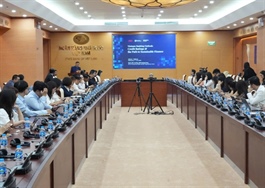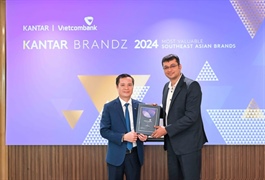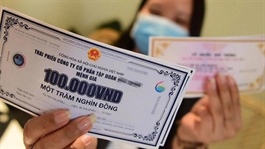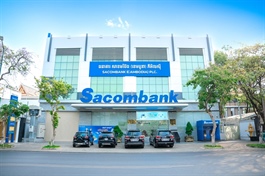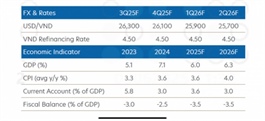Draft resolution on establishment of int'l financial centre in Việt Nam presented to parliament
Draft resolution on establishment of int'l financial centre in Việt Nam presented to parliament
The choice of the two cities – HCM City and Đà Nẵng – to host the international financial centre was based on their economic advantages, infrastructure and international connectivity, aimed at creating new growth poles and ensuring balanced development.
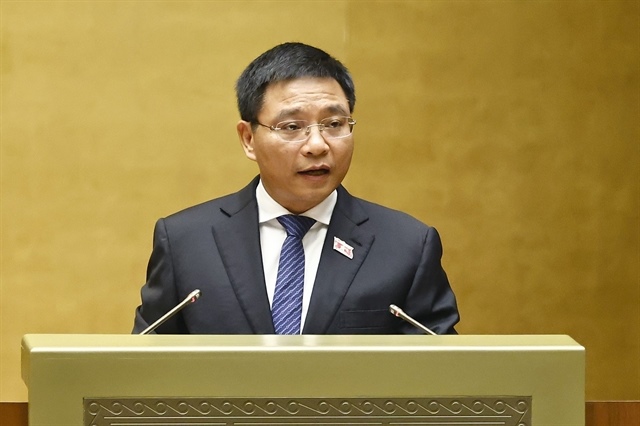
Minister of Finance Nguyễn Văn Thắng presented a draft National Assembly resolution on the establishment of international financial centres in Việt Nam, at the NA's plenary session in Hà Nội. — VNA/VNS Photo Doãn Tấn |
Minister of Finance Nguyễn Văn Thắng on Wednesday presented a draft National Assembly (NA) resolution on the establishment of an international financial centre (IFC) in Việt Nam during the NA's plenary session in Hà Nội.
The draft resolution is expected to provide a groundbreaking legal framework to attract international capital, foster new drivers of growth and elevate Việt Nam’s standing on the global financial map.
Not just a legal document, the draft resolution is also a long-term development strategy that reflects Việt Nam’s vision and aspiration to build a financial centre of regional and international importance. Its primary objective is to create an attractive investment environment serving as a magnet for capital flows from around the world. These capital flows will focus on Việt Nam’s three key strategic breakthroughs: institutional reform, infrastructure development and workforce advancement.
In addition, the resolution aims to promote new growth drivers, including the digital economy, green economy and innovation.
Minister Thắng said that the resolution seeks to develop high-end financial services, pilot and manage emerging markets (such as digital assets and carbon credits), attract and cultivate a high-quality workforce, enhance integration with the global economy and raise Việt Nam’s profile in global financial markets.
He stressed that the drafting of the resolution has been guided by consistent principles to ensure the success and sustainability of the IFC.
The draft comprises six chapters and 35 articles. Its core content lies in the innovative and breakthrough policies it proposes.
Specifically, it introduces new and distinct regulations compared to existing laws and resolutions, creating a special and attractive legal environment for the IFC. The designated geographical areas for the IFC are located in HCM City and Đà Nẵng.
The minister explained that the choice of these two cities was based on their economic advantages, infrastructure and international connectivity, aimed at creating new growth poles and ensuring their balanced development.
HCM City will focus on developing the capital market, banking system, fintech sandboxes, exchanges, commodity markets and supply chains.
Meanwhile, Đà Nẵng will specialise in green finance, trade finance and piloting new models (such as digital assets and currencies), attracting investment funds and developing fintech start-ups.
The overarching goal is to ensure fairness and complementarity between the two locations, thereby promoting sustainable finance, enhancing Việt Nam’s global reputation and attracting and nurturing high-quality talent.
A notable provision in the draft allows members to establish various exchanges, including commodities, commodity derivatives, carbon credits, cultural and artistic products, precious metals, securities for innovative start-ups, and green financial products.
On this basis, the draft resolution focuses on key policy areas to facilitate the development of the IFC. These include foreign exchange policy, banking operations, financial policies, capital market development, taxation and financial incentives.
Specific incentives include a 10 per cent corporate income tax for 30 years, tax exemption for the first four years, 50 per cent reduction for the next nine years, and personal income tax exemptions for highly skilled workers. Additional incentives are provided for various services and transactions at the centres.
Other supporting policies cover entry, exit and residence; labour; land use (up to 70 years for priority projects and 50 years for others); construction and environmental management; regulatory sandboxes for fintech and innovation; sector-specific incentives; policies for strategic investors; infrastructure development (technical and social); and import – export and goods distribution. A dispute resolution mechanism for business and investment activities is also included.
The draft resolution is expected to be submitted for deliberation and adoption during the ongoing 9th session of the National Assembly.
Rights and accountability
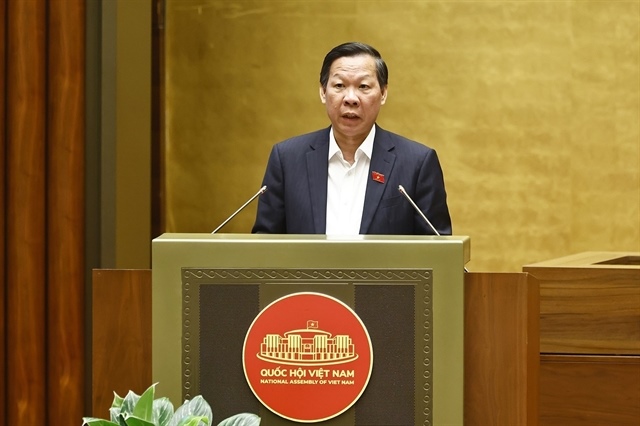
Minister of Finance Nguyễn Văn Thắng presented a draft National Assembly resolution on the establishment of international financial centres in Việt Nam, at the NA's plenary session in Hà Nội. — VNA/VNS Photo Doãn Tấn |
The NA's Committee for Economic and Financial Affairs also delivered its appraisal report on the draft resolution. The committee offered an in-depth assessment and key recommendations to enhance the resolution’s feasibility and effectiveness.
Committee Chairman Phan Văn Mãi underscored the importance of strict adherence to principles in legislative development. The report called for ensuring constitutional compliance and proper institutionalisation of the Politburo’s resolutions and conclusions.
The committee encouraged bold and innovative policy design, cautioning against replication of existing models. It emphasised the need to leverage Việt Nam’s late-mover advantage by learning from international successes and avoiding past failures, thereby building a globally competitive edge. Moreover, regulatory and oversight mechanisms should be rationally designed to remain open while ensuring financial security, political stability and social order.
Another recommendation from the committee suggested that the drafting body assess how well the policy groups in the draft resolution support the legal framework necessary for the formation and operation of the financial centre. It raised the question of whether the provisions are sufficiently attractive and competitive, and urged clarification of Việt Nam’s unique advantages.
Given the novelty of this endeavour, the committee suggested that the resolution focus on overarching and proven principles. Mãi highlighted the Government’s and Prime Minister’s crucial role in issuing specific guidance to ensure flexibility and responsiveness. Meanwhile, delegation of authority to the cities must be done in a manner that guarantees autonomy, flexibility and creativity within legal bounds.
The committee also supported a provision allowing the Government to issue decrees to address emerging issues during implementation. However, it insisted that this must strictly comply with principles of power control, legality, constitutionality and protecting national interests. In particular, responsibilities of organisations and individuals must be clearly defined, especially when issuing regulations that differ from current laws, ensuring that rights are accompanied by accountability.
The committee further requested clarification of the operational models, relationships and independence between the two centres (in HCM City and Đà Nẵng), as well as the roles of State regulatory bodies. This aims to promote effective coordination and strengthen regulatory efficiency to foster fair competition.
The chairman confirmed the committee’s support for a special regulatory mechanism, but recommended including provisions on the responsibilities of relevant agencies to safeguard the financial and banking system security and prevent legal loopholes.
He also suggested a comprehensive review of tax incentives to maintain attractiveness without violating international commitments, with a focus on simplifying and clarifying procedures for accessing such incentives. A mechanism should be established to guide and oversee the application of these incentives to avoid revenue losses.
Regarding infrastructure development, the committee recommended assessing the impact of these policies on the State budget and called for cities to proactively allocate resources. It also supported the establishment of a specialised dispute resolution mechanism, but asked for clarification on the mechanism's structure, mandate, decision-making authority and how it differs from existing mechanisms. The draft should consider the establishment of a dedicated court to resolve disputes within the IFC.
- 10:42 12/06/2025



